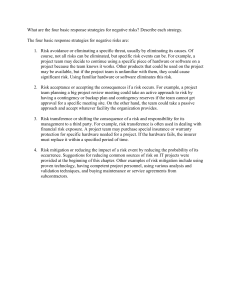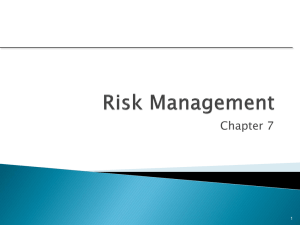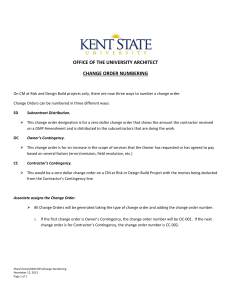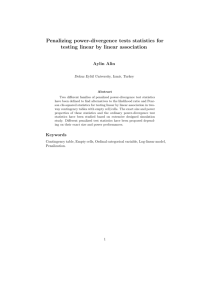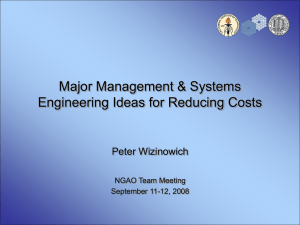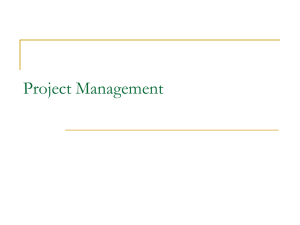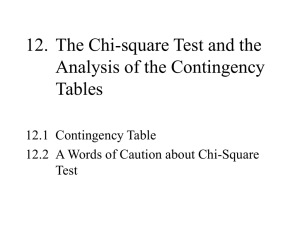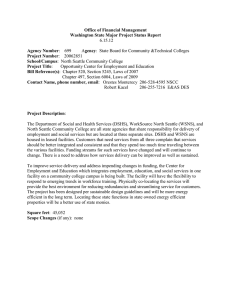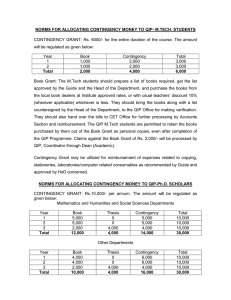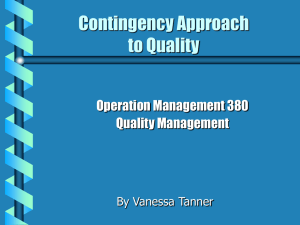Project Risk Management
advertisement
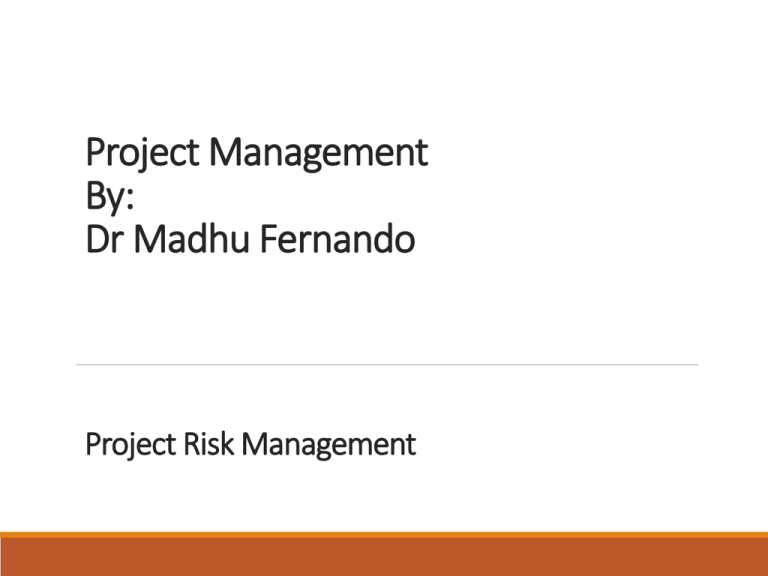
Project Management By: Dr Madhu Fernando Project Risk Management Project Risk Management Project Plans are based on many assumptions and previous experiences. Every project is unique, so changes and risks expected in projects can always be different. Be proactive in identifying and managing risks to avoid: unplanned project cost, project delays and poor project performance. Project Risk Management Conduct a Risk Analysis and identify all the risks at the beginning of every project, and carefully monitor them throughout the project. PMI PMBoK defines Project Risk management as “the systematic process of identifying, analyzing and responding to project risks”. Importance of Project Risk Management PMBoK suggests, it maximize the probability and consequences of positive events and minimize the probability and consequences of adverse effects on the project objectives. Benefits of Project Risk Management Improved project quality Minimization of financial loss and project delays through contingency planning Risk Management culture and proactive strategies Plan Risk Management and Identify Project Risks Typical Risk Categories: Technical, Quality or Performance Risks Project Management Risks: Lack of PM skills and competence, PM process. Organizational Risks : Prioritization of projects, organizational structural changes. External Risks : Government, Regulatory risks, weather changes, natural disasters. Project Risk Management Processes Project Risk Management involves following processes. 1. Plan Risk Management 2. Identify Risk 3. Perform Qualitative Risk Analysis 4. Perform Quantitative Risk Analysis 5. Plan Risk Responses 6. Monitor and control project risks Plan Risk Management – Process Summary Required Input: Project Scope statement Cost Management Plan Schedule Management plan Communication Management plan Enterprise environmental factors Organisational process assets Tools and Techniques: Planning meetings and analysis Output: Risk Management Plan Project Risk Management Processes Project Risk Management involves following processes. 1. Plan Risk Management 2. Identify Risk 3. Perform Qualitative Risk Analysis 4. Perform Quantitative Risk Analysis 5. Plan Risk Responses 6. Monitor and control project risks Risk Register Template List of Identified Risks List of Potential Responses Responsible PI Matrix Template Risk Probability Impact PI (risk ranking) Plan Risk Responses Risk can be positive or negative. There are three ways to respond to a negative project risk: Avoidance : Changing the project plan or conditions to eliminate the risk. Transference : Shifting the consequences of a risk to a third party with responsibility for responding to that risk. Mitigation : Take early actions to reduce the probability and consequences of risks, or its impact on the project. Acceptance : When there is no other alternative, risks will be accepted. Can be Active (having a contingency plan) or Passive Plan Risk Responses There are three response strategies for a positive project risk: Exploit Enhance Share Acceptance Contingency response strategy : Contingency response plan is designed to use only if certain event occur. Eg: missing an intermediate milestone can be a trigger that requires a contingency response. Project Monitoring and Controlling Process - Risk Project Risk Management Monitor and Control Project Risks : ◦ Risks are monitored through out the project, with risk reviews/audits to ensure they will make no or minimal impact to the project, if they occur. ◦ It confirms that some of the risks will no longer be valid, and also new risks might also be identified during this process. Risk Management Exercise Conduct a Risk Analysis for ‘the selected project’ Identify, prioritize, and document project risks. Develop a Risk Response plan with response strategies. Nominate the risk Owner for each prioritized risk.
